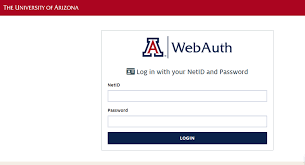Pros and Cons of Getting Degrees From Liberal Arts Colleges vs Universities

Are you at a crossroads in your academic journey? Are you unsure of which path to take? Choosing the right school for your post-secondary education is a pivotal decision that can shape your future.
These days, it’s important to consider the pros and cons of different educational institutions. Liberal arts colleges and universities offer unique advantages and disadvantages. Both can impact your educational experience.
In the content below, we’ll discuss the pros and cons of liberal arts colleges vs. universities. This breakdown should help you make an informed decision about which path best suits your academic goals. So, let’s pave the way to your future success!
The Pros of Attending a Liberal Arts College
Liberal arts colleges offer a great experience. Here are some of the pros:
Small Class Sizes
One of the major advantages of attending a liberal arts college is the smaller class sizes. With fewer students per class, you’ll have more opportunities to engage in meaningful discussions. You can ask questions and receive personalized attention from professors.
This intimate learning environment fosters strong relationships between faculty and students. This will create mentorship throughout your academic journey.
Furthermore, the smaller student body creates a tight-knit community. With fewer people, you can easily form connections with your peers.
Interdisciplinary Learning
Another benefit of attending a liberal arts college is the emphasis on critical thinking and interdisciplinary learning. Liberal arts curricula often require students to take courses from various disciplines. This exposes them to a wide range of subjects and perspectives.
Interdisciplinary learning helps to develop strong analytical and problem-solving skills. By studying a broad range of subjects, you’ll gain a deeper understanding of the interconnectedness of different fields, enabling you to approach complex issues.
A Focus on Undergraduate Education
Liberal arts colleges often prioritize undergraduate education. Therefore, professors are primarily focused on teaching rather than research. This translates into professors who are dedicated to helping students succeed.
With smaller class sizes and a more student-centered approach, you’ll have ample opportunities to engage in meaningful discussions with professors. This level of individual attention can greatly enhance your learning experience.
The Cons of Attending a Liberal Arts College
While liberal arts colleges offer superb advantages, they’re not without their limitations. Here are some of the downsides:
Limited Programs
A drawback of liberal arts colleges is the limited range of majors and programs. Due to their smaller size, liberal arts colleges may offer fewer specialized majors. If you have a specific career path in mind that’s not offered, you may need to consider alternative options.
Small Student Body
The smaller student body at liberal arts colleges can be a pro and a con. While it fosters a sense of community, it may also lead to a lack of diversity in terms of experiences and perspectives. If you value a diverse environment, a liberal arts college may not be for you.
Resource Availability
Another con is the availability of resources and research opportunities. While liberal arts colleges often excel in providing a strong undergraduate education, they may have limited resources. If you have a strong interest in research or plan to pursue graduate studies, a university with extensive resources may be a better fit.
The Pros of Attending a University
Universities offer several upsides that may make them a suitable choice. These are a few of the good things:
An Extensive Number of Majors
One of the main benefits of attending a university is the wide range of majors and programs available. Universities often have a diverse array of academic departments. This allows students to choose from a broad range of fields.
Having flexibility is especially beneficial if you already have a clear career path in mind. It’s also helpful if you’re interested in pursuing a highly specialized field of study.
More Resources
Universities typically have more resources compared to liberal arts colleges. They often have well-equipped laboratories, libraries, and other facilities. These facilities support research and provide hands-on learning experiences.
If you aspire to contribute to your field through academic pursuits, a university can offer the resources necessary to further your ambitions.
Better Professors
Universities often attract renowned faculty members who are experts in their fields. These professors can provide valuable mentorship to students. Interacting with leading experts in your field can broaden your knowledge and provide unique learning opportunities.
Moreover, universities often have a larger pool of faculty. This means a wider range of courses to choose from.
The Cons of Attending a University
Universities have many advantages, but they also come with certain drawbacks. Here are some downsides to expect:
Bigger Class Sizes
One potential disadvantage of attending a university is the larger class sizes. Unlike liberal arts colleges, universities often have larger student populations. This leads to bigger class sizes and less individualized attention.
Unfortunately, this can make it more challenging to engage and receive feedback on your work.
Competition
Universities tend to have a more competitive environment compared to liberal arts colleges. With a larger student body, the competition for resources and internships may be more intense.
If you prefer a more collaborative learning environment, a university may not provide the camaraderie that you desire.
A Focus on Research
Another potential downside is the focus on research over teaching. This can be an advantage in terms of access to cutting-edge research.
However, it may mean that professors prioritize their research over teaching responsibilities. This could result in less availability of professors for students seeking support.
Are you looking for a private student loan? If so, click the highlighted link!
Liberal Arts Colleges vs. Universities: The Big Debate
As you can see, there’s a lot to decide on between liberal arts colleges vs. universities. While choosing universities for post-secondary education offers a bigger opportunity, liberal arts colleges offer more individualized assistance. Hopefully these pros and cons help you decide on the right type of school.
To read more content like this, feel free to browse our website. Enjoy!




